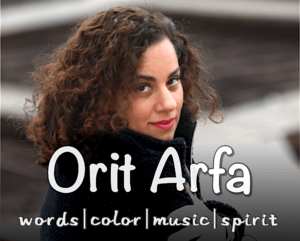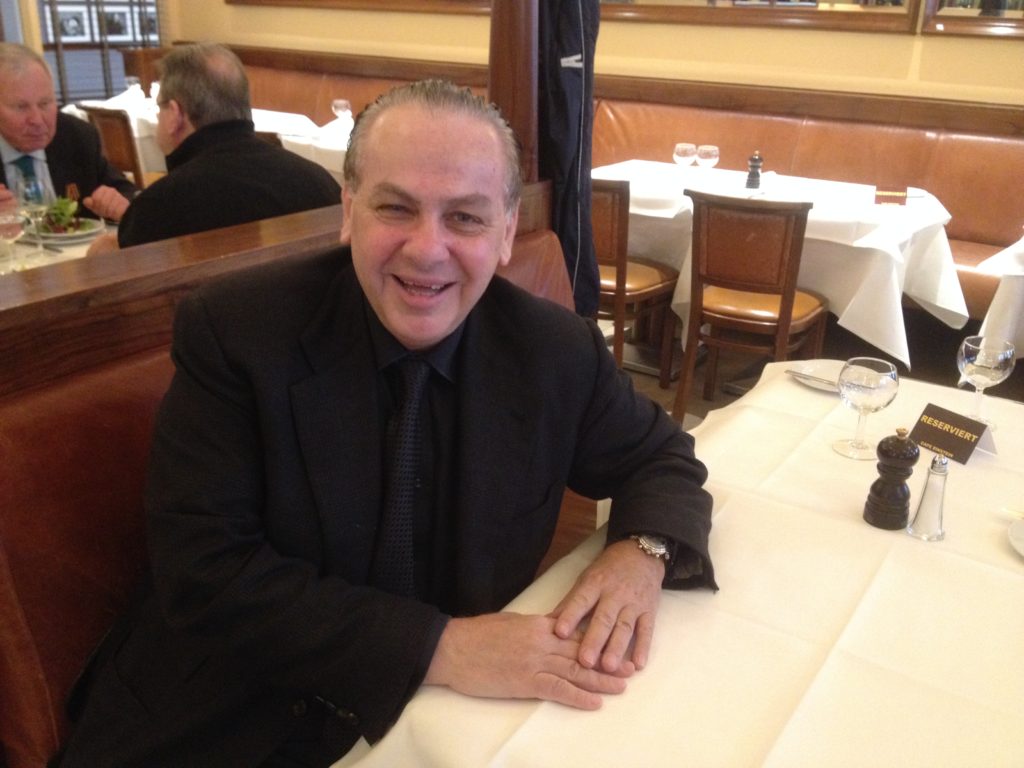Jerusalem Post Magazine, February 19, 2016
Click here to read online (for Jpost subscribers)
Late last year Josef Schuster, president of the Central Council of Jews in Germany, expressed concern that anti-Semitism will be imported into Germany with the wave of Muslim migrants inculcated with hatred of Israel in their countries of origin.
For Dr. Rafael Korenzecher, publisher of the Jewish German monthly Jüdische Rundschau, Schuster’s public concern comes a little too late.
“These people were sitting quietly because they are always trying not to annoy the official Islam-appeasement policy of our government,” Korenzecher said at in interview at Kaffeehaus Einstein near the Brandenburg Gate, wrapped in his Hermes scarf, speaking brashly with a bulldozer flair.
“They say, cowardly, ‘we have to be aware not to say anything bad about Islam because the Islam itself is never to blame, it is only the Islamism.’” Jüdische Rundschau (“Jewish Review”) was the name of a German weekly published from 1902 to 1938, until Kristallnacht put an end to it. Korenzecher revived it as a monthly to provide an unabashed, independent pro-Israel editorial line after Operation Protective Edge saw pro-Palestinian protesters in Berlin shout “Jews to the gas,” while German police simply looked on.
The son of Holocaust survivors, Korenzecher came to Germany at age 10. Trained as a physician, he became a real estate businessman. Unlike immigrants of the 1950s and 60s who came for productive work, today’s “refugees,” he said, are largely opportunists; authentic asylum seekers would suffice with safe shelter in places such as Turkey or Jordan.
Andreas Boldt, arguably Germany’s most outspoken, non-Jewish pro-Israel activist, founded the Freundschaft Deutschland-Israel (German-Israel Friendship) Facebook page in 2011. Today, it has 13,000 members. Rarely does a personal Facebook post of his go by without effusive praise and love for Israel. Having grown up as a Christian but no longer identifying as one, he supports Israel, he said, from a humanitarian perspective; anyone who loves freedom, science, human rights and intellectual creativity must be pro-Israel.
A contributor to the Jüdische Rundschau, he also met with the Magazine at Kaffeehaus Einstein, sharing Korenzecher’s worried forecast.
“I really was sure that in two or three generations to come, Germany would have normal relations with Israel and the Jewish people in general,” Boldt said. “I was very optimistic we will overcome the issue of the Holocaust and German history in the sense of having a normal relationship in the way we have with the British, French, etc. We have anti-Semitism here and they’re in the far Right, but they’re a minority and they’re more or less silent…With the rise of Islamism in Europe and Germany in general we hear more talk about BDS and against Israel.”

Boldt said most of the hate mail he receives for his social media pro-Israel activity comes from Arab Muslims, not from the far Right or far Left (except for the occasional Leftwing Israeli). Boldt fears that said Arab-Muslim anti-Israel pressure may goad anti-Semitic attitudes dormant in some Germans.
“The average Germans just don’t want any conflict,” he said. “We want a peaceful life. We want to save money for our lives. They’re quiet, usually. They don’t demonstrate… the Muslim population is pushing the Germans, saying: ‘Hey, we have to do something.’ Starting with boycott calls in front of shops, so they avoid those shops because they don’t want conflict.”
On a personal note, Boldt has had to make minor adjustments in his family lifestyle. Living in a village near Bielefeld, he and his wife now won’t allow his 12-year-old daughter to travel alone by bus to reach her dance class because it passes through an unfriendly refugee camp.
“I saw the way they look at her,” he said. “They didn’t even give us a way to pass.”
Korenzecher believes crime and threats by Muslims generally go unreported because the German government and mainstream media are wary of criticizing Islam, hence the delay in reporting the New Year’s Eve sexual harassment incidents.
“Can you imagine if there was a circle of Chabadniks doing that; it would be in the press the next second,” Korenzecher said. “And if right-wing people did that – it would be in the press. They’re trying to minimize the Islamic crime by causing everybody to shut up about Islamic contempt and violation of our laws. They are calling every and even justified criticism of Islam ‘racism’ but they let the Islamic racism, for example, against Jews happen without opposition.”
So far, German liberal values have been widely, publicly affected with caution now being taken with the traditional regional festivals. The town of Rheinberg, for instance, recently canceled its annual carnival over fears of Cologne-style sex assaults on women.
The impact on German-Jewish relations has yet to play out. Boldt thinks it may take five to 10 years for the migrants to feel confident in turning public tide against Israel, and by extension, the Jews. Korenzecher has noticed increased insecurity at Jewish establishments. He believes Germany stands at a crossroads.
“We have a reactive right-wing shift, but I don’t think the right-wing shift will overcome in the end,” Korenzecher said. “But our policy may cause the termination of our liberal way of life. I don’t want the Right – I hate the Right – but I don’t want an Islamization of our society either. It’s a loss of the way of life for you and me and the free people who don’t want any extreme and don’t want to be told how to behave or believe.”

